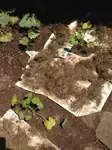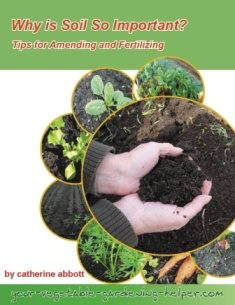Storage tips for vegetables and fruits.
Produce Storage tips
VEGETABLE Storage tips:
Asparagus
Is very delicate and should be eaten within one to two days.
Beans
Should be stored in plastic in the refrigerator. Do not wash until ready to eat.
Broccoli, Brussels Sprouts and Cauliflower
Should be stored in the crisper section of the refrigerator. Store is loosely tied plastic bag. Leave the plastic wrap on Cauliflower until ready to use. They should keep for up to a week, but preferably used within four days. Soaking in water prior to cooking will help revive limp broccoli
Carrots
Bunched carrots should be stored in an open plastic bag. Remove tops as they draw the moisture from the root.
Cucumbers, Summer Squash and Peas
Should be stored in plastic bags in the crisper drawer of the refrigerator. Peas keep better if stored very cold (1 C), but cucumbers and squash prefer slightly warmer temperatures. Snow peas, unlike snap and sugar peas, should be stored in a perforated bag, as the moisture will cause spoilage
Corn
Should be stored in the husks in the crisper drawer of the refrigerator. Eat quickly since the sugar turns to starch the longer corn sits.
Eggplant
Can keep up to five days if stored in a plastic bag in a warmer section of the refrigerator
Lettuce, Greens and Fresh Herbs
Like high humidity and cool temperatures. You can also store them loosely in a plastic bag with a cloth. Eat greens within five days, but if stored properly, they can keep for a week, especially our farm fresh greens. If they seem a little dry, sprinkle a little water on top of the leaves before bagging. Alternately wash the greens, drying them in a salad spinner and then storing them in a tightly sealed plastic container with a cloth in the bottom to soak moisture.
Mushrooms
Should be stored in a paper bag that is placed inside a plastic bag to allow mushrooms to breathe without going dry. Keep them away from other foods to avoid absorbing odours
Onions and Garlic,
Should be stored at room temperature in a dry dark cupboard. They should keep for a week or longer, but check for softening. In the spring when their biological clock is ticking they may begin to sprout.
Potatoes
Like cool, humid (but not wet) and dark places. Do not store in plastic bags (unless well ventilated) for longer than a few days. Unwashed potatoes store much longer than washed potatoes and will keep for a month. Our local potatoes are unwashed. In the spring when their biological clock is ticking they may begin to sprout.
Peppers
Should be stored in warmer parts of the refrigerator in plastic bags. Keep away from ethylene-producing fruit such as apples and pears.
Root Vegetables
Beets, Carrots, Celery Root, Parsnips, Radishes, Rutabagas, Sunchokes, Turnips, etc. should be stored in ventilated plastic bags in the high humidity drawer of the refrigerator.
Squash, Yams, Sweet Potatoes
Should be stored at room temperature in a dry dark cupboard. They should
keep for a week or longer, but check for softening. In the spring when
their biological clock is ticking they may begin to sprout.
Tomatoes
Should be stored at room temperature. Ripe tomatoes will keep for three days. Green tomatoes should not be ripened on the windowsill. Instead, place them in a paper bag with or without ethylene-producing fruit such as apples and pears.
Special storage tip notes:
Onions and Garlic: need good air circulation, keep away from light and potatoes; both do well in hanging baskets or mesh bags; depending on their condition when harvested, will store several months. The longer they are stored, the cooler the temperature.
Winter squash (including pumpkin): store loose on shelf - do not allow them to touch each other. Will keep several months.
FRUIT Storage tips:
Apples and Pears
Will keep for a few weeks in the
refrigerator if stored loosely. Pears need to soften at room temperature
prior to eating to ensure ripening. Do not store apples at room
temperature.
Bananas and Avocados
Should be stored at room
temperature. You can place them in a paper bag with ethylene-producing
fruit such as apples and pears to accelerate ripening, especially if
green or hard.
Berries
Should be stored covered in the
refrigerator, preferably with a towel and then with plastic. Any berries
that are soft should be eaten immediately and not stored with other
berries. Do not store in the high humidity drawer since moisture
accelerates spoilage. Alternately wash, sprinkle with a small amount of
cane sugar and store in a covered glass bowl.
Citrus
Should be
stored in a cool place outside the refrigerator if eaten within two
days. It will keep up to two weeks if stored in the vegetable drawer of
your refrigerator.
Grapes
Should be washed and dried prior to
storing in the refrigerator. Remove any soft grapes and do not stack
bunches too deeply, as the skins are quite thin and sensitive. Grapes
are easy to freeze and make great frozen snacks for kids (and adults
too!).
Melons
Should be stored at room temperature and eaten
quickly after ripening. Do not refrigerate unless very ripe or cut.
Store cut melons with seeds in loose wrapped plastic or open side down
on a plate.
Stone Fruit
Peaches, plums, apricots, nectarines,
etc. should be stored at room temperature until ripe. Storing in a paper
bag with ethylene-producing fruit such as apples, pears or bananas will
hasten ripening. After ripening, store in the refrigerator for up to
three days. Storing peaches, nectarines and apricots in the refrigerator
will affect quality as the chill robs the fruit of its juice and
flavor.
*Most fruit is damaged by bruising; handle and store carefully.
Refrigerator storage tips:
Apples, grapes, nectarines, peaches, pears, plums, rhubarb, kiwis: Keep in plastic bags, will keep well in fridge.
Berries, cherries, figs: protect from bruising, store in an open, shallow container. Use within 3 - 4 days.
Cool location storage tips:
Ripe bananas, citrus fruit (lemons, limes, oranges, grapefruit), melons, pineapple.
Room temperature storage tips:
Unripened bananas, peaches, pears, kiwis; store unripened peaches and pears in a single layer and watch closely for signs of ripening - the fruit gives under gentle pressure, pears turn lemony yellow.
Recent Articles
-
Organic Gardening soil amendments - List of material?
Aug 09, 25 10:57 AM
What materials are best used as organic gardening soil amendments? -
Tips for disease control in your vegetable garden
Jul 14, 25 11:15 AM
Easy tips for disease control to keep your vegetable growing its best. -
Joy of vegetable Gardening
Jul 14, 25 11:01 AM
Everything you need to know is right here to have Joy of Vegetable Gardening





